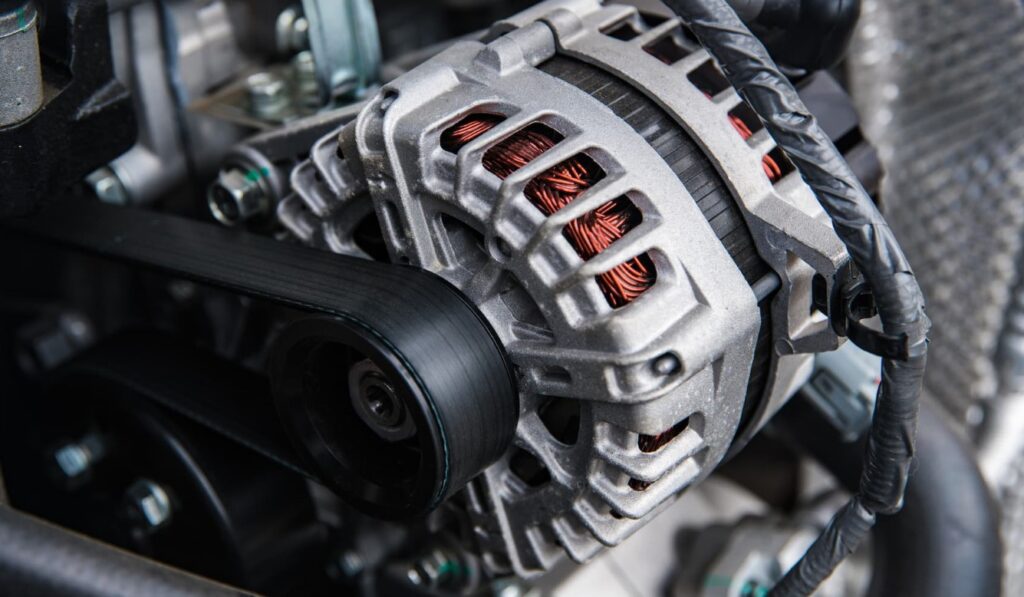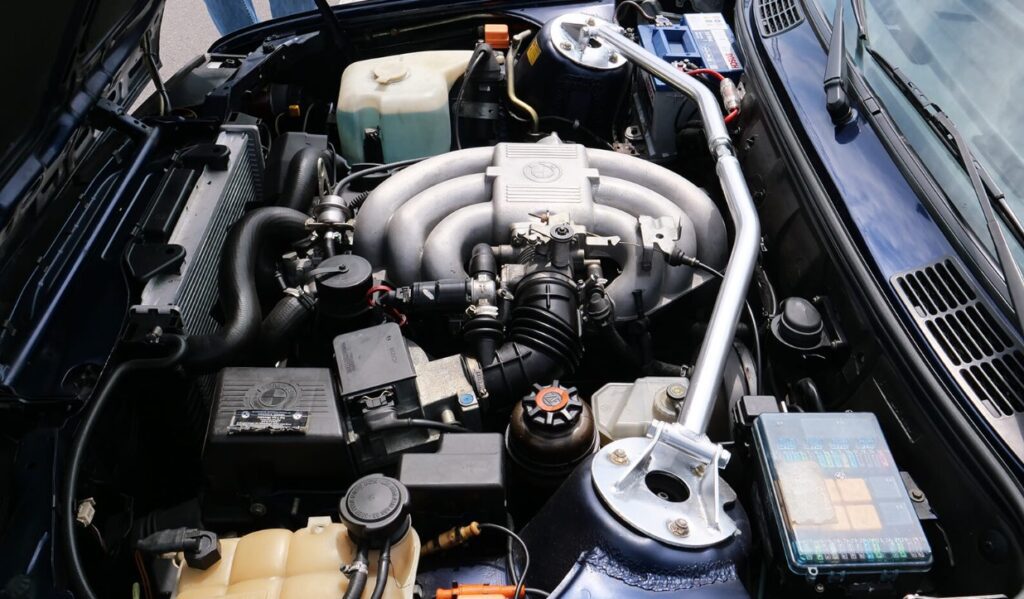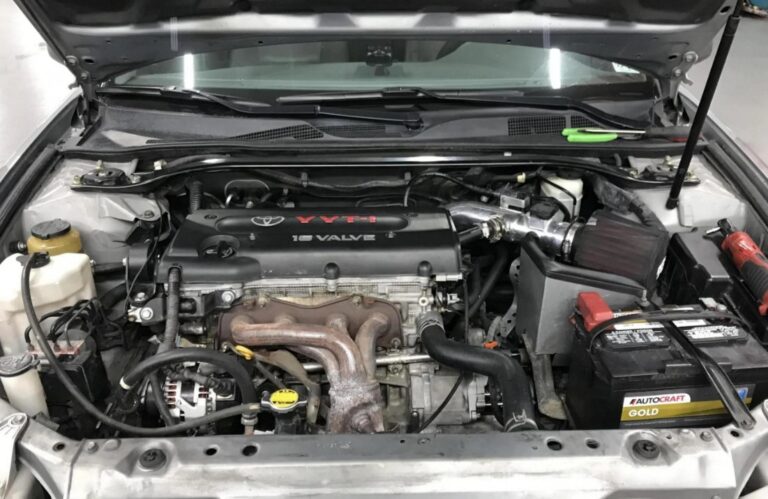Can A Bad Alternator Cause Engine To Shake? [Explained]
Are you looking for Can A Bad Alternator Cause Engine To Shake? Experiencing engine vibrations can be concerning for any vehicle owner. Among various causes, a malfunctioning alternator stands out as a potential culprit. In this article, we’ll explore the intricate connection between a bad alternator and engine shaking. Understanding this link is crucial for maintaining your vehicle’s health and ensuring a smooth ride.
Key Takeaways
- A bad alternator can indirectly cause engine shaking.
- Alternator issues affect the electrical system, impacting engine performance.
- Regular maintenance can prevent alternator-related problems.
Can A Bad Alternator Cause Engine To Shake?
Yes, a bad alternator can indirectly lead to engine shaking. The alternator is a pivotal component in your car’s electrical system. It charges the battery and powers the electrical system while the engine is running.

When it fails, the electrical consistency is disrupted, affecting the engine’s performance. This disruption can manifest as engine shaking, especially when the electrical load is high.
Understanding the Role of the Alternator
The alternator generates electricity to power various components. If it’s malfunctioning, the battery may drain quickly, leading to insufficient power supply. This power shortage can cause erratic engine behavior, including shaking or stuttering.
Electrical System and Engine Performance
When the alternator underperforms, the electrical system becomes unstable. This instability can affect the ignition system and fuel injectors, leading to uneven engine running and noticeable vibrations.
Symptoms of a Failing Alternator
Identifying a failing alternator early can save you from more severe complications, like engine shaking.
Warning Signs
- Dimming headlights
- Warning lights on the dashboard
- Electrical component failures
How It Leads to Engine Shaking?
As the alternator deteriorates, it fails to keep up with the energy demands of the car. This failure can result in intermittent power supply to the engine control unit (ECU), leading to irregular engine behavior and shaking.
Diagnosing Alternator Problems
Proper diagnosis is key to addressing the issue effectively.

Professional Inspection
A comprehensive electrical system check by a professional can pinpoint alternator issues. They will test the alternator’s output and inspect for any physical damage.
DIY Troubleshooting
You can check for loose connections or worn-out belts. However, for a detailed diagnosis, professional assistance is advisable.
Preventative Measures
Preventative maintenance can significantly reduce the risk of alternator-related problems.
Regular Check-ups
Scheduled maintenance appointments can catch early signs of alternator wear.
Understanding Electrical Load
Be mindful of the electrical load you put on your car. Overloading the electrical system can strain the alternator.
Alternator Replacement and Repair
When an alternator fails, prompt action is necessary.
Choosing the Right Service
Opt for a reputable service center for alternator repair or replacement. Ensure they use quality parts compatible with your vehicle.
Cost Considerations
While alternator repair can be costly, it’s crucial for your car’s health. Investing in quality repair services saves money in the long run.
Why Is My Engine Shaking All Of A Sudden?
Engine shaking that occurs suddenly can be alarming and is typically a sign of underlying mechanical issues. Several factors can cause this, including engine misfires, problems with the engine’s air and fuel intake, faulty spark plugs, or issues with the vehicle’s exhaust system.

Engine misfires often result from an imbalance in the air-fuel mixture or problems with the ignition system. Additionally, a malfunctioning transmission or worn engine mounts can also lead to noticeable shaking.
It’s crucial to diagnose and address these issues promptly, as they can lead to more serious problems if ignored. Regular maintenance and immediate attention to any unusual engine behavior are key to preventing sudden engine shaking.
Can Bad Alternator Cause Jerking?
Yes, a bad alternator can indirectly cause a car to jerk. This typically happens because the alternator, responsible for charging the car’s battery and powering the electrical system, fails to provide a consistent power supply.

When the alternator underperforms, it can lead to fluctuations in the electrical system’s voltage. These fluctuations can affect the operation of the fuel injectors and ignition system, leading to intermittent power delivery to the engine.
This inconsistent power delivery can manifest as jerking or stuttering, especially when the vehicle is under load or accelerating. Regular checks of the alternator’s performance and timely repairs can help prevent such issues.
How To Prolong Alternator Life?
Prolonging the life of your vehicle’s alternator involves several preventive measures. Firstly, ensure that the electrical system is not overloaded by excessive aftermarket additions, like high-power audio systems, which can strain the alternator.
Regularly check and maintain the serpentine belt, which drives the alternator, as a loose or worn belt can affect alternator performance. Keeping the alternator clean from dust and debris helps prevent overheating.
Additionally, ensuring that your vehicle’s battery is in good condition is essential, as a failing battery can overwork the alternator. Finally, routine check-ups by a professional can identify early signs of wear and tear, enabling timely repairs or replacements. These steps can significantly extend the life of an alternator, ensuring reliable performance.
Conclusion
Understanding the role of the alternator in your vehicle’s performance is essential. A bad alternator can indeed cause engine shaking, through its impact on the electrical system.
Regular maintenance, early diagnosis, and prompt repair are key to preventing and addressing this issue. Remember, a healthy alternator means a smoother ride and a more reliable vehicle.
Top FAQ’s
Can a failing alternator affect fuel efficiency?
Indirectly, yes. A bad alternator can affect the performance of the ignition system and fuel injectors, leading to inefficient engine performance and reduced fuel efficiency.
How much does it cost to replace an alternator?
The cost varies depending on the vehicle model and the quality of the replacement part. Generally, it can range from $250 to $600, with luxury cars being more expensive. Labor costs also vary depending on the complexity of the replacement.
Can alternator issues trigger the check engine light?
Yes, in many vehicles, alternator problems can trigger the check engine light. This occurs because the failing alternator affects the vehicle’s electrical system, which is monitored by the engine’s computer.
What causes an alternator to fail?
Common causes include age, wear and tear, overuse, faulty components (like the voltage regulator or diodes), and strain from powering too many electrical accessories.
Is it better to repair or replace a bad alternator?
This depends on the severity of the issue and the age of the alternator. If it’s a minor issue like a loose belt or a bad connection, repair might be sufficient. However, if the alternator is old or severely damaged, replacement is usually the better option.

Welcome to the exhilarating world of Matt Rex, a professional car racer turned renowned vehicle enthusiast. Immerse yourself in his captivating blog as he shares heart-pounding adventures, expert reviews, and valuable insights on cars, trucks, jets, and more. Fuel your passion for speed and discover the beauty of vehicles through Matt’s engaging stories and meticulous expertise. Join the ever-growing community of enthusiasts who find inspiration and expert advice in Matt Rex’s blog—a digital hub where the thrill of speed meets the pursuit of knowledge.




![Cummins Bad Fuel Control Actuator Symptoms [How To Diagnose?]](https://www.turbochaos.com/wp-content/uploads/2023/12/Cummins-Bad-Fuel-Control-Actuator-Symptoms-768x660.jpg)


